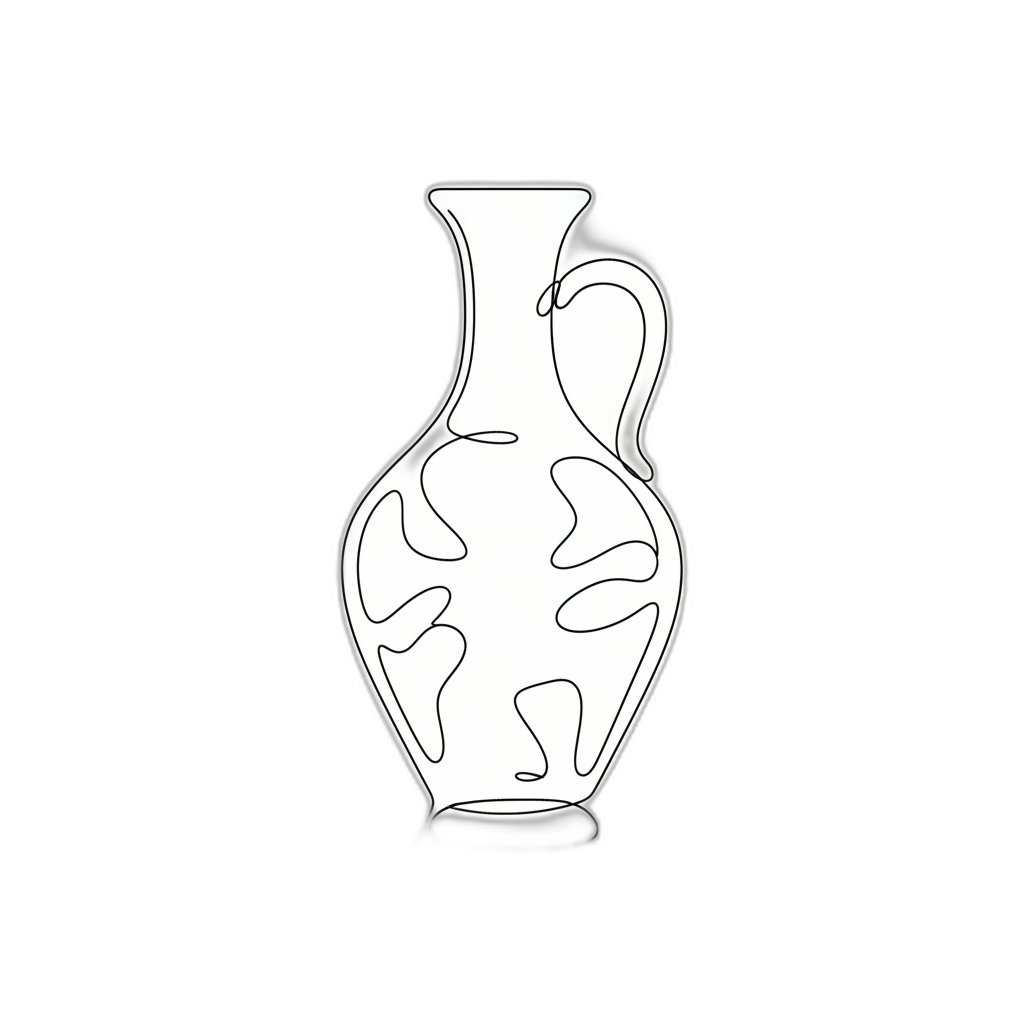






5-Star Valuation Services, Loved by Hundreds
Your Appraiser Search Ends Here
AppraiseItNow offers defensible personal property appraisals for any legal or tax need.


Easy & Fast Online Appraisal Process
Our unique model allows us to meet super tight deadlines for tax filings, court dates, internal company project timelines.

Industry-Leading Appraisal Speed
Our unique business model means that we always have a credentialed appraiser available to work on your project, and we can meet obscure and short deadlines for tax filings, court submissions, internal projects, and more. Even if that means preparing your appraisal within 24 hours!

Any Asset Covered
This means that we can appraise any type of item including furniture, artwork, jewelry, business inventory, machinery & equipment, cars, boats, and more!

Servicing Enterprises & Individuals
Our company services anyone from an individual with a single couch to an enterprise needing contents of multiple offices or warehouses appraised.

Defensible for Any Purpose
Frequently Asked
Questions
No Frequently Asked Questions Found.
The claim process involves multiple intricate stages that require careful documentation and communication. Initially, the policyholder must promptly notify their insurance provider about the incident, providing comprehensive details and supporting evidence. This early communication establishes the foundation for a potential settlement.
Documentation plays a pivotal role in substantiating the claim's legitimacy. Policyholders must gather relevant materials such as photographs, receipts, official reports, and witness statements that comprehensively demonstrate the extent and circumstances of the loss. These materials serve as critical evidence during the insurance company's investigation.
Following notification, a claims adjuster will thoroughly review the submitted documentation, assess the incident's details, and determine the claim's validity based on the specific policy's terms and conditions. This professional evaluation ensures that the claim aligns with the agreed-upon coverage parameters.
The resolution phase involves the insurance company's decision to approve, deny, or negotiate the claim's compensation amount. If approved, the insurer will issue payment to the policyholder or directly to service providers, helping restore the financial position of the affected party.
Successful claims management requires precision, timeliness, and transparent communication. Policyholders who understand this process and maintain meticulous records significantly improve their chances of receiving fair compensation during challenging circumstances.
Professional appraisals deliver precise valuations that go beyond surface-level assessments. Certified appraisers meticulously evaluate property, considering nuanced factors like condition, market value, and specific characteristics that significantly impact overall worth. This detailed approach ensures policyholders receive fair and accurate compensation that truly reflects their property's value.
Documentation is another fundamental aspect of insurance claim appraisals. The formal assessment creates an authoritative record that serves as a critical reference point for both the policyholder and insurance company. This comprehensive documentation helps eliminate ambiguity, reduce potential disputes, and provide clear evidence of the property's condition and value at the time of loss.
Expert appraisers bring specialized knowledge that transcends typical property evaluation. Their professional insight allows for in-depth analysis of complex assets, whether it involves specialized items like vintage collectibles, intricate jewelry, or unique property types. This expertise becomes particularly valuable when standard assessment methods prove insufficient.
The appraisal process also expedites claim resolution by presenting a clear, professionally validated valuation. By providing a transparent and detailed assessment, policyholders can streamline negotiations and reduce potential delays or conflicts with insurance providers.
Moreover, these professional evaluations serve as a strategic tool if claim disputes arise. Should an initial claim be denied or undervalued, a comprehensive appraisal provides robust evidence to support an appeal, potentially reversing unfavorable initial determinations.
Beyond immediate claim resolution, appraisals offer broader insights into potential coverage gaps. During the evaluation process, appraisers might identify nuanced damage or underinsured aspects of a property, empowering policyholders to make more informed future insurance decisions.
Ultimately, a professional insurance claim appraisal transforms an potentially stressful situation into a methodical, transparent process. By leveraging expert assessment, policyholders gain confidence, clarity, and a strategic approach to navigating complex property loss scenarios.
Certified appraisers with specialized expertise conduct these evaluations by performing a detailed inspection that examines multiple critical factors. These include the item's physical condition, historical age, provenance, inherent rarity, and current market demand - each element carefully weighed to establish an accurate and defensible valuation.
Individuals typically seek personal property appraisals during significant life transitions and financial planning scenarios. Common contexts include estate planning, where precise asset valuation facilitates equitable property distribution, divorce proceedings requiring fair asset division, and insurance documentation to ensure adequate coverage for valuable possessions.
The appraisal process also proves invaluable for potential sales, auctions, and investment decisions. Sellers can leverage professional valuations to price items strategically, while buyers gain confidence through independent verification of an item's market worth. This objective assessment helps both parties navigate transactions with greater transparency and understanding.
Tax-related considerations frequently drive the need for personal property appraisals as well. Charitable donations, for instance, require documented valuations to substantiate potential tax deductions, ensuring compliance with established regulatory guidelines.
Ultimately, a professional personal property appraisal provides owners with a comprehensive understanding of their assets' financial significance. By offering detailed insights and objective analysis, these evaluations empower individuals to make informed decisions about their personal property with enhanced confidence and clarity.
The online appraisal process typically involves two primary methods. First, high-resolution photographic submissions allow appraisers to conduct detailed evaluations. Clients can upload clear, well-lit images that capture multiple angles and specific details of their items, providing crucial visual information for accurate valuation.
For more complex or nuanced items, live video consultations offer an interactive alternative. Using video conferencing platforms, appraisers can engage in real-time discussions, examine items dynamically, and ask targeted questions to gather comprehensive information about the property's condition, provenance, and unique characteristics.
Online personal property appraisals present several compelling advantages:
- Unparalleled convenience for clients
- Rapid turnaround times
- Geographical flexibility
- Comprehensive assessment capabilities
- Minimal disruption to personal schedules
Professional online appraisers maintain rigorous standards, ensuring that remote evaluations meet the same technical and ethical guidelines as traditional in-person assessments. By combining technological innovation with expert knowledge, these digital appraisal services provide accurate, reliable property valuations tailored to individual client needs.
Antique appraisers delve into historical items over a century old, carefully examining factors like condition, rarity, and provenance. They provide nuanced insights into pieces that carry significant historical and aesthetic value, understanding the intricate details that influence market pricing.
Art appraisers focus on evaluating artistic works, considering complex factors such as the artist's reputation, artwork condition, historical significance, and current market demand. Their expertise is critical for insurance documentation, potential sales, and comprehensive estate planning.
Jewelry appraisers specialize in assessing precious and costume jewelry, meticulously analyzing materials, craftsmanship, design elements, and market value. Their detailed evaluations are essential for insurance coverage, potential resale, and estate settlement processes.
Collectibles appraisers concentrate on unique items like rare coins, vintage stamps, sports memorabilia, and classic toys. They determine value by carefully examining rarity, condition, and collector market dynamics, providing critical insights for collectors and investors.
Real estate personal property appraisers concentrate on items integrated within property transactions, including fixtures, equipment, and furnishings. Their comprehensive assessments support accurate property valuations, tax assessments, and sales negotiations.
Industrial and commercial appraisers specialize in evaluating machinery, equipment, and technical assets across various industries. They assess functional condition, remaining operational life, and potential market value, supporting critical financial and strategic business decisions.
General personal property appraisers offer versatile valuation services across a broad spectrum of items, from household goods to electronics and miscellaneous collectibles. Their adaptable expertise makes them valuable resources for diverse appraisal needs.
These specialized professionals collectively represent a sophisticated network of valuation experts, each contributing unique insights and methodological approaches to understanding the complex world of personal property assessment.
Tax considerations represent a significant motivation for obtaining an appraisal. When donating high-value items, a formal appraisal becomes essential for verifying potential tax deductions. The IRS requires documented valuations for items exceeding specific thresholds, ensuring donors can accurately substantiate the fair market value of their contributions.
Insurance protection constitutes another crucial reason for securing a professional appraisal. Comprehensive documentation helps homeowners and collectors ensure their valuable possessions are appropriately covered. In the event of loss, theft, or damage, a precise appraisal provides definitive evidence of an item's worth, streamlining the claims process and protecting the owner's financial interests.
Estate planning demands meticulous asset valuation to facilitate equitable distribution among heirs. An accurate appraisal prevents potential conflicts by establishing clear, objective values for personal property. This becomes particularly important during probate proceedings, where precise asset valuation ensures fair resolution and complies with legal requirements.
Legal proceedings frequently rely on professional property appraisals to resolve complex disputes. Divorce settlements, business divisions, and other legal matters benefit from objective, expert valuations that provide transparent and defensible assessments of personal property's worth.
Financial planning and investment strategies also gain significant value from current, professional appraisals. These assessments help individuals and collectors understand market trends, track asset appreciation, and make informed decisions about buying, selling, or maintaining their personal property portfolios.
A professional personal property appraisal transcends mere number-crunching. It represents a comprehensive analysis that protects financial interests, provides critical documentation, and offers peace of mind across multiple personal and professional contexts.
Introduction to Personal Property Appraisals
Personal property appraisals play a crucial role in determining the value of items for insurance claims, ensuring that policyholders are adequately compensated in the event of a loss. These appraisals involve a thorough examination of various personal belongings, ranging from jewelry and art to electronics and collectibles. As the value of personal property can change over time due to market fluctuations, understanding the appraisal process is essential for maintaining accurate insurance coverage.
During a personal property appraisal for insurance purposes, qualified appraisers assess the condition, quality, and market value of items. This process not only involves visual inspection but also may require in-depth research using market data and sales history to establish an accurate value. Comprehensive documentation is typically provided to clients, which serves as a formal record of the estimated worth of their belongings and is essential for filing insurance claims.
Understanding the importance of personal property appraisals can help individuals make informed decisions about their insurance policies. It ensures that clients are aware of the true value of their possessions, which can prevent potential disputes with insurers regarding coverage limits and claim amounts. Ultimately, a thorough appraisal can provide peace of mind, empowering property owners to navigate the insurance landscape with confidence.
Understanding the Role of Personal Property Appraisals in Insurance Claims
Personal property appraisals serve a crucial role in the insurance claims process, providing an objective assessment of the value of an individual's belongings. When losses occur due to theft, fire, or natural disasters, having an updated appraisal ensures that policyholders receive fair compensation for their lost or damaged items. Professional appraisers evaluate personal property by taking into account its condition, market demand, and historical value, allowing for an accurate representation substantiating the claim.
Additionally, personal property appraisals help streamline the claims process, reducing the likelihood of disputes between policyholders and insurance providers. A well-documented appraisal can clarify the specifics of the claim, providing written evidence that supports the policyholder's valuation. This level of detail not only facilitates a smoother transaction but also strengthens the policyholder's position if disagreements arise during negotiations with the insurer.
Furthermore, obtaining a personal property appraisal is not just beneficial after an incident occurs; it can also serve as a proactive measure for individuals looking to safeguard their investments. Regular appraisals can help track the appreciation or depreciation of valuable items over time. This is particularly useful for high-value possessions like art, antiques, and collectibles, as it ensures individuals are adequately insured and prepared should any claims arise in the future.
Types of Personal Property That Require Appraisals
Personal property appraisals can encompass a wide range of items, each necessitating a tailored approach depending on their unique characteristics and intended use. Common types of personal property that often require appraisals include fine art, antiques, collectibles, jewelry, and specialized equipment. For instance, fine art pieces might not only have monetary value but also cultural and sentimental significance, making a skilled appraiser essential to accurately convey their worth. Similarly, antiques and collectibles may fluctuate in value based on market trends, rarity, and condition, underlining the necessity for a professional evaluation.
In addition to valuable personal items, personal property appraisals are crucial for homeowners and businesses to adequately insure their belongings. Items such as electronics, furnishings, and valuable collections can quickly accumulate in value, leading to significant financial implications in the event of a loss. Moreover, specialized property like musical instruments or sports memorabilia may require an expert familiar with that specific niche market to provide an accurate appraisal. Ensuring that personal property is appraised correctly not only aids in securing proper insurance coverage but also provides peace of mind in knowing that investments are protected.
The Appraisal Process: What to Expect
When requesting a personal property appraisal for an insurance claim, it’s essential to understand the key steps involved in the appraisal process. Initially, an independent appraiser is selected based on their expertise with the type of property being assessed, such as antiques, art, or valuables. The appraiser will typically conduct a thorough inspection of the items in question, documenting their condition, provenance, and any relevant market trends that may affect their value.
Following the inspection, the appraiser will compile a detailed report that outlines their findings, including photographs, descriptions, and an analysis of similar items in the market. This report not only serves as an official valuation but also provides substantiated evidence that can be presented to the insurance company. It is crucial for policyholders to engage with their appraiser during this phase to ensure that all relevant details and nuances are captured accurately.
Once the appraisal report is finalized, it can be submitted alongside the insurance claim. The insurance company will review the report, which can aid in expediting the claim process or negotiating settlements based on the appraised value. Understanding these steps can alleviate some of the anxiety that often accompanies insurance claims, providing a clearer path toward recovering valuable losses.
Importance of Proper Documentation
Proper documentation is essential in personal property appraisals, especially when filing an insurance claim. This process involves collecting detailed records of each item, including photographs, receipts, and descriptions that accurately reflect the value and condition of the property. These documents not only serve as a reference point during evaluations but also provide insurers with the necessary information to assess claims effectively. Without thorough documentation, the risk of disputes can increase, potentially leading to reduced payouts or claim denials.
In addition to covering the value of items, proper documentation can also expedite the claims process. When all necessary information is readily available, appraisers and insurance adjusters can work more efficiently, leading to quicker resolutions for policyholders. Furthermore, detailed records can demonstrate proactive management of personal belongings, which can enhance trust between the insured and the insurer. Ultimately, investing time and effort into proper documentation can significantly impact the outcome of an insurance claim.
Choosing the Right Appraiser for Your Needs
When it comes to selecting the right appraiser for your personal property appraisal needs, it's essential to consider their qualifications and areas of expertise. Look for appraisers who hold recognized designations from professional organizations, as this indicates a commitment to ethical standards and ongoing education. Additionally, find someone who has specific experience in the type of property you need appraised, whether it's art, jewelry, collectibles, or furniture, as this will ensure a more accurate and reliable valuation.
Communication is another crucial factor in the appraisal process. A good appraiser should be willing to take the time to understand your unique situation, answer any questions you may have, and clearly explain their methodology for determining the value of your property. This transparency not only fosters trust but also helps you feel confident that you are receiving a fair and unbiased appraisal that best serves your needs, particularly when filing an insurance claim.
Common Mistakes in Personal Property Appraisals
One of the most common mistakes in personal property appraisals is underestimating the value of items due to a lack of documentation. Many individuals overlook the importance of keeping detailed records, such as receipts, photographs, and appraisals for their personal property. This absence of comprehensive documentation can lead to undervaluation or complications during the claims process, resulting in insufficient compensation when damaged or lost items need to be claimed. Proper documentation not only helps appraisers provide an accurate assessment but also strengthens the argument for the valuation determined.
Another frequent misstep is relying solely on outdated appraisals or generic online valuation tools. The market for personal property can fluctuate significantly, and valuations need to reflect current trends and conditions. Appraisals that do not account for these shifts can drastically misrepresent the true value of items, leading to disputes with insurance companies. Engaging a qualified appraiser who stays updated on market conditions and has expertise in specific types of personal property is crucial for ensuring an accurate and fair evaluation.
How Appraisals Affect Insurance Coverage and Claims
Understanding how appraisals affect insurance coverage and claims is crucial for homeowners and business owners alike. An appraisal provides a professional evaluation of personal property value, which can significantly influence the coverage limits set by insurance policies. Accurate appraisals help ensure that policyholders have sufficient coverage to replace or repair lost items after a claim, thereby preventing potential financial losses in the event of unforeseen circumstances like theft, fire, or natural disasters.
Moreover, having a current appraisal can streamline the insurance claims process. When a loss occurs, insurers often require documentation to substantiate claims, and a detailed appraisal provides that necessary proof of value. This can lead to quicker resolutions and fair compensation, making the process less stressful for policyholders. It's essential for individuals to periodically review and update appraisals to reflect any changes in value due to market conditions or modifications to the property.
The Difference Between Replacement Cost and Actual Cash Value
Understanding the distinction between replacement cost and actual cash value is crucial when navigating personal property appraisals for insurance claims. Replacement cost refers to the amount required to replace an item with a similar one of equal utility, without deducting for depreciation. This means that if an item is damaged or lost, the policyholder can expect compensation that reflects the current market price of a comparable item, enabling them to fully replace the item without incurring additional out-of-pocket expenses.
On the other hand, actual cash value calculates the worth of an item at the time of loss, factoring in depreciation. This approach means that the insurance payout will typically be less than what it would cost to replace the item, as it takes into account the item's age, condition, and any wear and tear. Consequently, understanding whether your insurance policy operates on a replacement cost or actual cash value basis is essential for accurately assessing potential claims and ensuring sufficient coverage.
Frequently Asked Questions about Personal Property Appraisals
When it comes to personal property appraisals, many individuals have questions that often revolve around the purpose and process of these assessments. A personal property appraisal serves to determine the current market value of items such as jewelry, art, collectibles, and any other personal belongings. This evaluation is crucial for insurance claims, ensuring that policyholders receive appropriate compensation in the event of loss or damage. Understanding this process helps individuals make informed decisions regarding their insurance coverage and provides clarity in the event of a claim.
Common queries also include the qualifications needed for an appraiser and the types of documentation required for an accurate appraisal. Appraisers should possess specific credentials and experience in assessing the value of personal items, as their expertise directly impacts the appraisal's reliability. Furthermore, clients are often encouraged to gather supportive documents, such as purchase receipts, prior appraisals, and any relevant photographs of the items. This comprehensive documentation aids appraisers in delivering a precise valuation, thereby streamlining the insurance claim process.
Conclusion: Ensuring Your Assets Are Adequately Appraised for Insurance Claims
In conclusion, having a thorough personal property appraisal can be crucial for effectively managing insurance claims. An accurate valuation of your belongings ensures you have the right coverage and can help avoid underinsurance, which might leave you vulnerable to potential financial loss. A well-documented appraisal can serve as a vital piece of evidence when filing a claim, making the process smoother and ensuring that you receive appropriate compensation for your assets.
Additionally, the appraisal process itself can provide you with valuable insights into the worth of your possessions, which can become particularly relevant during unforeseen events such as theft, fire, or natural disasters. By understanding the value of your items, you can make informed decisions about your insurance coverage and consider necessary adjustments based on the current market conditions or changes to your collection. Regularly updating your appraisal not only keeps your policy aligned with your asset values but also showcases any increasing worth of unique items you may own.
Furthermore, working with a qualified appraiser who specializes in personal property can help ensure that your appraisal reflects the true market value of your assets. This expertise is vital in providing a comprehensive valuation that takes into account the condition, provenance, and current demand for your items. Ultimately, investing time and resources into a professional appraisal can safeguard your investments and prepare you for any potential claims, providing peace of mind in your financial planning.
Additional Resources for Further Reading
Understanding personal property appraisals, especially in the context of insurance claims, is crucial for both property owners and insurance adjusters. Appraisals provide an objective assessment of the value of personal items, which can include anything from artwork to electronics. This independent evaluation helps ensure that claims are settled fairly and can aid in accurately determining policy limits and coverage. Having a thoughtful approach to appraisals can streamline the claims process and foster better communication between the insured and the insurance provider.
For those looking to dive deeper into the topic, there are numerous resources available that cover the nuances of personal property appraisals. These materials often explain the appraisal methodologies, the importance of accurate documentation, and tips for maintaining a current inventory of personal belongings. Understanding these aspects can empower property owners to advocate for themselves more effectively should they need to file a claim. Familiarity with industry terminology and appraisal standards can also enhance comprehension when dealing with insurers.
Moreover, workshops, seminars, and online courses regarding personal property appraisal can serve as valuable platforms for learning and professional development. These opportunities often feature insights from experienced appraisers and insurance professionals, shedding light on best practices and the latest industry trends. Networking with experts and peers in these settings can provide additional perspectives and strategies to navigate insurance claims. Engaging with these resources not only enhances knowledge but also contributes to a more effective claim experience.
View all Locations
APPRAISEITNOW APPRAISERS ARE BEST-IN-CLASS & CREDENTIALED BY LEADING APPRAISAL ORGANIZATIONS LIKE THE ISA, ASA, & MORE.



















.svg)








